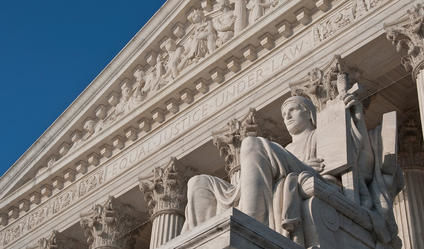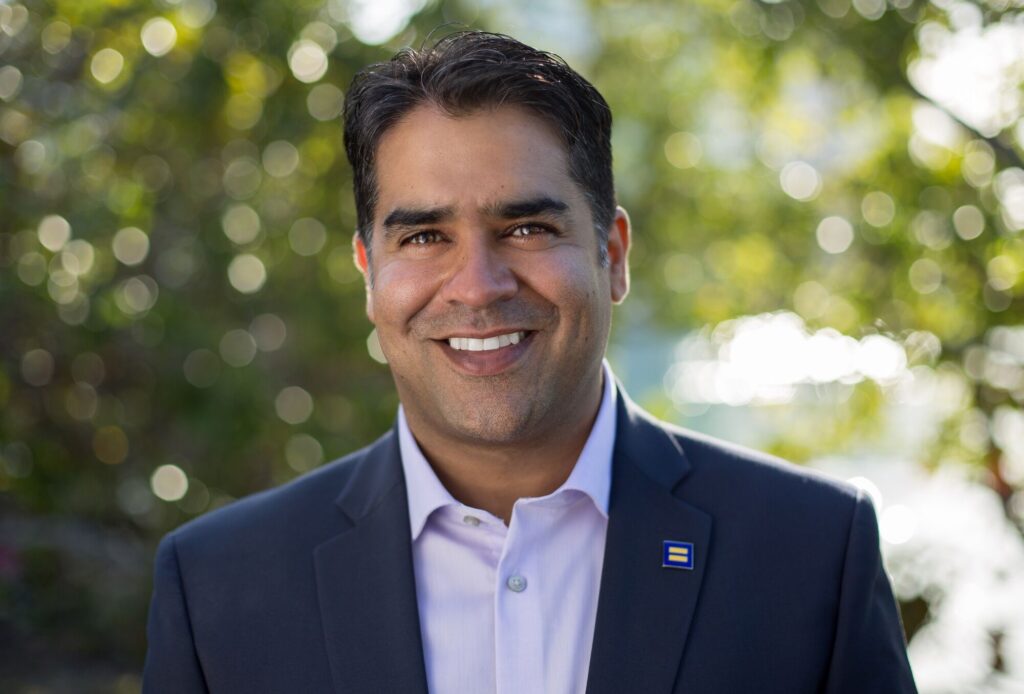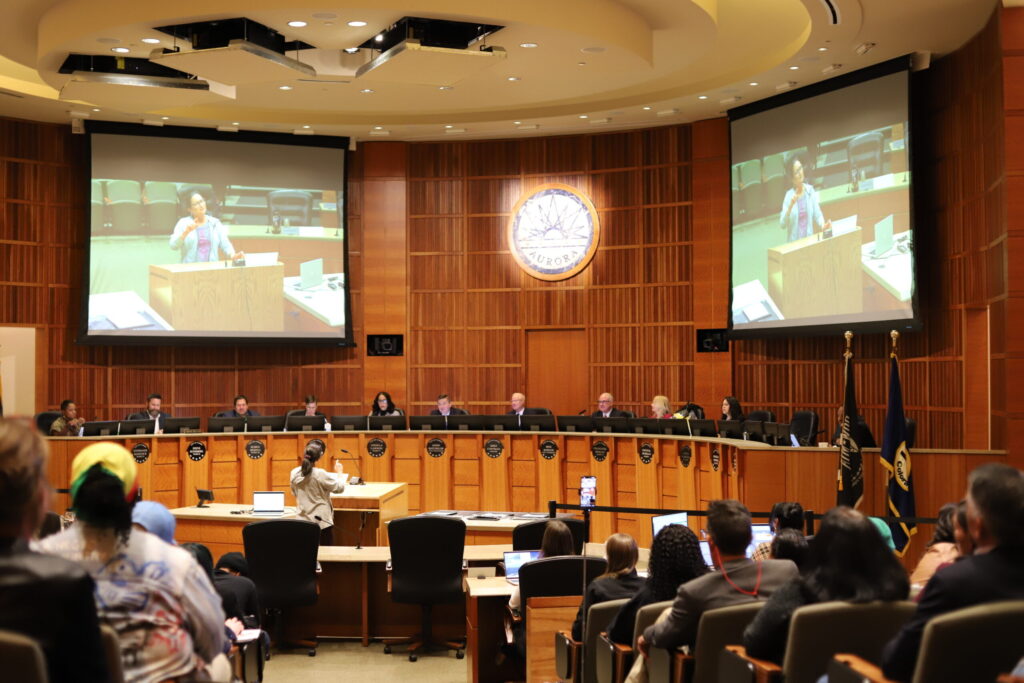Douglas County appeals voucher program to U.S. Supreme Court, cites religious discrimination

Students in the Douglas County School District who want to take advantage of the district’s controversial voucher program will have to wait to hear if the U.S. Supreme Court will consider reversing the Colorado Supreme Court decision that struck it down.
Backers of the district’s Choice Scholarship Pilot Program want the nation’s highest court to declare unconstitutional a provision found in dozens of state constitutions they say discriminates against religious schools, while opponents of the program say it’s a matter of keeping church and state separate.
The school district has filed a request with the U.S. Supreme Court to push the deadline for briefs back to the end of October, said district attorney Paul Clement. A group of parents and the state of Colorado are also asking the high court to review the constitutionality of the program.
“The ultimate hope is that the Court will consider the case and will essentially reverse the state Supreme Court decision and allow the pilot program to go into effect,” said Clement.
In June, the Colorado Supreme Court ruled 4-3 that the voucher program violates Article IX Section 7 of the state Constitution, which prohibits the use of taxpayer funds to support any “sectarian” or religious schools. The provision, commonly known as a Blaine Amendment, landed in numerous state constitutions after the Civil War.
The lawsuit challenging the program was brought by Taxpayers for Public Education, along with a group of Douglas County parents and students, with the backing of the American Civil Liberties Union of Colorado.
“This stark constitutional provision makes one thing clear: A school district may not aid religious schools,” wrote Colorado Chief Justice Nancy Rice for the majority.
Attorneys for the district argue that, because the program provides scholarships directly to students, which are then paid to private schools by parents, the program doesn’t violate the provision.
Once scholarships are issued, parents can send their children to any of the private schools approved by the district. According to district officials, in 2011, prior to the injunction that put the program on hold, the district accepted applications from interested private schools throughout the area. The schools had to submit to a rigorous analysis of academic programs and financial records, but religious affiliation wasn’t considered as a factor for approval, officials said.
Several of the schools listed as prospective private-partner schools by the district — especially those teaching middle and high school grades — have religious affiliations.
Clement said the state court’s ruling essentially forces the district to discriminate against religious schools if the district chooses to continue the program.
“When the Colorado Supreme Court’s opinion was announced in late June, we promised a careful, thorough and rigorous legal analysis to determine our next steps,” said DCSD Board of Education President Kevin Larsen in a statement issued earlier this month announcing the appeal to the U.S. Supreme Court. He added that the district has “retained the very best legal minds in the country to make our argument that the June 29 opinion runs afoul of the United States Constitution.”
The Choice Scholarship Pilot Program was implemented in March 2011 and designed to provide up to 500 scholarships for Douglas County students to attend private schools. To participate, students had to reside in the district at least a year and be currently enrolled in a district school.
Denver District Court issued an injunction on the program in August 2011 but then, in 2013, the Colorado Court of Appeals ruled in favor of the district. A coalition including the American Civil Liberties Union of Colorado, American Federation of Teachers and Americans for Separation of Church and State appealed that decision to the Colorado Supreme Court.
“Public money will not go to funding religious schools — no how, no way, we really mean it,” ACLU attorney Mark Silverstein said after the state Supreme Court decision. “State constitutions can protect civil liberties and religious freedom more strongly and more thoroughly than the federal constitution, and that’s what we have here.”
But Clement argues that the clause isn’t about protecting religious freedom so much as enforcing anti-Catholic bigotry.
“The problem is the Blaine Amendment as it was originally written was a pretty absolutist provision,” Clement said. “It was designed to really stamp out all aid to Catholic institutions at the time.”
Tom Romero, an associate professor at the University of Denver Sturm College of Law, however, disagrees with that assessment.
“The record’s mixed,” he told The Colorado Statesman. “History is messy, history is a lot more complicated than that.”
Rep. James Blaine, of Maine, had proposed the Blaine Amendment on the federal level at the same time the Colorado constitution was being drafted, Romero said. It was reflective of what was going on at the time in states, which were developing constitutions with very strict divisions between the public and private realms, especially in education clauses.
There was anti-Catholic sentiment in the country at the time, Romero said, particularly related to immigration issues involving countries with Catholic majorities. There was also a strong anti-Mormon bias, but even more important, he said, was the anti-institutional sense, which led to limits on government and business monopolies and drew clear divides between church and state.
“If I recall correctly, Blaine was actually Catholic himself,” Romero added.
Coloradans drafting the state constitution might not have even been aware of Blaine’s efforts in Washington when they developed the provision, said Romero, who specializes in the legal history of the American West. And in order to get the constitution approved, lawmakers would have had to gain support from Catholic residents in the southern part of the state and in mining communities.
Clement maintains that the state Supreme Court’s ruling will limit the school district’s efforts to expand school choice. The scholarship program is part the district’s stated effort to increase choice within the school system. Policies also includes pay-for-performance for teachers and giving students more options about which district schools to attend.
It isn’t the same as in other parts of the country where school-choice programs are used to fix troubled districts, he said.
“(Douglas County schools are) actually functioning at a high level,” Clement said. “All the schools are going to get better.”
When the district files petition with the high court, there will be plenty of amicus briefs filed in support, he said.
“This is an issue that’s important for school-choice initiatives not just in Colorado but nationwide,” he said.
Romero said he doubts the Court will accept the appeal because the case law is fairly settled.
“My guess, my feeling is the Supreme Court’s not going to take this case,” he said. “This clause, the record does not indicate that it was done as a result of anti-Catholic bias in the state constitution.”
The Court has previously said that states whose constitutions don’t have provisions like Colorado’s are free to establish voucher programs, but it has also ruled that provisions like Colorado’s are permissible.
“Unless there’s evidence out there that I haven’t seen, I would be surprised if the Court takes the case on that basis,” he said.













